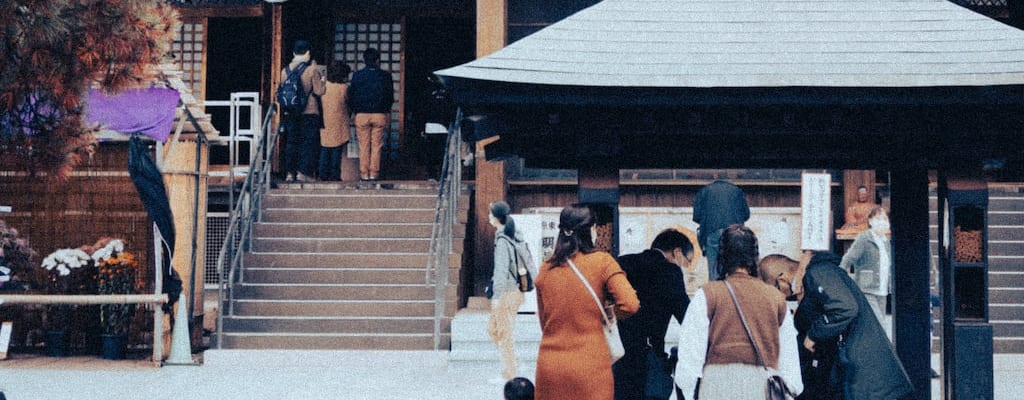wear out one’s welcome: Idiom Meaning and Origin
What does ‘wear out one's welcome’ mean?
The idiom "wear out one's welcome" means to stay somewhere long enough that one is no longer welcome or desired.

Idiom Explorer
The idiom "wind up one's bottoms" is an obscure and unconventional phrase which doesn't have a widely accepted meaning. It may be a variation or misinterpretation of a common idiom, or simply a nonsensical expression. Without further context or evidence, it's difficult to provide a definitive explanation for this idiom's meaning.
The idiom "wind down" means to relax or become less active and energetic after a period of intense activity. It implies a gradual decrease in intensity or pace, allowing oneself to unwind and destress.
The idiom "when Hell freezes over" means that something is extremely unlikely or will never happen.
The idiom "wheel out" means to bring out or introduce something or someone that is old, familiar, or well-known. It is often used in situations where the thing or person being brought out has lost its novelty or has become predictable.
The idiom "watch out" means to be careful or vigilant, usually in order to avoid danger or potential harm. It is often used as a warning to someone to pay attention to their surroundings and be cautious.
The idiom "watch one's mouth" means to be careful about what one says, especially to avoid saying something offensive or disrespectful. It emphasizes the importance of choosing words wisely and being mindful of the impact they may have on others.
The idiom "watch one's language" means to be careful about the words one uses, especially in order to avoid saying something offensive or inappropriate.
The idiom "waste away" means to gradually become weaker, thinner, or less healthy, often due to illness or lack of proper care. It implies a continuous decline in physical condition or overall well-being.
Hospitality Overturned
The idiom "wear out one's welcome" is commonly used in English-speaking countries, particularly in the United States. It refers to the situation where someone has overstayed their initial warm reception and has become burdensome or irritating to the people around them.
The origin of this idiom can be traced back to the early 19th century, and it is believed to have emerged from the hospitality customs of that time. In the past, people would often stay in the homes of others for extended periods, especially when traveling. While the initial welcome was warm, there came a point when the host's patience or resources were exhausted, leading to a decline in the reception given to the guest.
This phrase has since evolved into a figurative expression, extending beyond staying in someone's home. It is now used to describe situations where someone has overstayed their welcome in any context, whether it be a social gathering, a job, or a relationship. The idiom carries a negative connotation, suggesting that the individual is no longer appreciated or desired in their current situation.
Typically, the idiom suggests that certain behaviors or actions have caused the person to become less welcome. It can refer to a person who has become demanding, annoying, or generally overbearing. These behaviors may include overstaying their allotted time, encroaching on personal space, exhibiting poor manners, or simply becoming tiresome and draining on others.
The phrase itself has a subtly ironic quality. While it suggests that a welcome has been worn out through the actions of an individual, it can also imply that the initially welcoming host or group is at fault. The phrase indirectly questions the limits of hospitality and the responsibilities of both the guest and the host.
The idiom "run out of town" is related to "wear out one's welcome" as it also involves being unwelcome in a particular place or community. It suggests that a person or group has done something so objectionable or offensive that they are forcibly expelled or made to leave. While "wear out one's welcome" implies a gradual decline in reception, "run out of town" conveys a more abrupt and forceful removal.
The idiom "take one's leave" is also related to "wear out one's welcome" as it involves the act of leaving a situation or relationship. When someone "takes their leave", they are choosing to depart voluntarily, often indicating that they have recognized that they are no longer welcome or that they have overstayed their desired presence. This can be seen as a more polite and respectful way of handling the situation, rather than waiting to be asked to leave.
Understanding the idiom 'wear out one's welcome' is important in interpreting the underlying messages conveyed in everyday conversations, literature, and media. It serves as a cautionary reminder that overstepping boundaries or overstaying one's time may result in losing favor, goodwill, or acceptance in various social settings.
Like many idioms, the phrase 'wear out one's welcome' continues to be used and adapted in modern contexts, reflecting the ever-evolving nature of language and cultural norms. It remains a vivid expression that encapsulates the delicate balance between acceptance and overstay, offering insights into the intricate dynamics of human interactions.
Example usage
Examples of how the idiom "wear out one's welcome" can be used in a sentence:
- After staying with them for two weeks, I could tell that I was starting to wear out my welcome.
- He had been talking for over an hour and it was clear that he was wearing out his welcome with the audience.
- They were invited to the party, but they stayed until the early hours of the morning, eventually wearing out their welcome.
More "Manners" idioms



